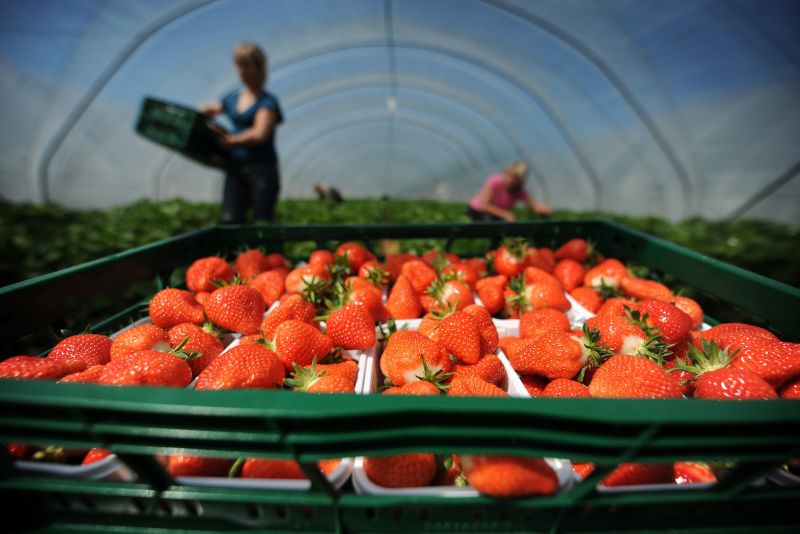At one time, littering and smoking in public were not considered as offensive as they are today, and even drunk driving was winked at. Gunders wants to see the same trajectory of opprobrium for food waste as for previously accepted behaviors.
“I’m really hoping that we can get to a point where wasting food be looked down upon,” Gunders said.
Americans throw away about 40 percent of their food. That’s like buying five bags of groceries and then leaving two of them at the store. Gunders wrote a book called “Waste Free Kitchen Handbook,” which is full of these sorts of facts about food waste and gives tips on how to cut down on wasting food.
Gunders says it’s become sort of “posh” in America to throw away food, but it wasn’t always this way.
“We are certainly wasting more food -- about 50 percent more of it -- than in the 70s,” she said. “This is a real change in attitude. (D)uring World War II, there was a huge campaign not to waste food.”
This included posters around the nation encouraging people to save food, she said. “The posters would say say things like food is a weapon, let’s save it."
World War II may be over but that doesn’t make food any less valuable. Gunders wants us to think about the resources it takes to deliver food to our tables. There’s gas, labor, soil and water. In California, 80 percent of the state’s water goes toward growing food. And when you throw that food out, you’re throwing out the water used in its cultivation.
“And then, there’s the fact that somebody else needs that food,” Gunders said. “It’s really a moral tragedy that we’re all okay with this.”
Gunders says there are a few forces creating this situation. For one, the industrialization of the food industry has made food cheaper and more accessible in the U.S. than ever before.
“On the one hand we have one in six Americans who are food insecure, and that means they don’t know where their next meal will come from,” Gunders said. “On the other hand, for the other segment of the population, food is low cost and so it may be [an] inconvenience to save it.”
And, Gunders said, as we’ve shifted away from being an agrarian society, we’ve become even more out-of-touch with the value of food.
You can see this phenomenon play out among students who take part in gardening programs. Having grown the food, they’ve learned to value it more, Gunders said.
“When kids see how much it takes to grow a broccoli, they’re much more willing to eat it,” Gunders said. “And they’re less excited about throwing it out.”
I asked Gunders if she thought there was more “germophobia” around our food today, because I've seen more and more people who think sharing food is unhealthy because it spreads germs. So ... better for your friend to throw out his half-eaten bowl of spaghetti than for you to eat it, is the thinking.
“I do think overall we do have more fear of our food than we used to,” Gunders said.
For example, people think you have to throw out food after their expiration dates. In fact, expiration dates are manufacturer suggestions for when the food is at its freshest. It’s not regulated and so really just the manufacturer’s best guess.
“People often think the food might make them sick after the expiration date,” Gunders said. “That’s not true.”
Gunders said your body is highly attuned to detect food that is going bad. It smells bad, it tastes weird, it feels slimy.
Gunders said not wasting food has taken on some urgency in recent years. At the same time we’re wasting more food than ever, we’re also growing more of it, and that’s wreaking havoc on the environment. For example, livestock agriculture worldwide is one of both the biggest contributors to greenhouse gases and destroyers of biodiversity.
If this is bumming you, don’t despair.
“The great news is that we can take this problem on,” Gunders said. “This is not climate change. This is about making small changes in our daily habits around food.”
The first step to not wasting food: Know Thyself.
Some people love leftovers and some people won’t touch them. If you’re somebody who finds them gross, Gunders suggests questioning your assumptions on why.
“But if that’s you, I’d say be more careful about the portions you’re cooking. And encourage your guests to take the food home.
“There’s this whole trend of carrying your coffee mug to the coffee shop,” Gunders said. “I’ve thought why don’t we carry our own leftover containers around?”
With that, happy holidays, and don’t forget to bring that leftover container to your next party!

